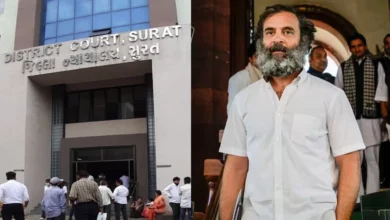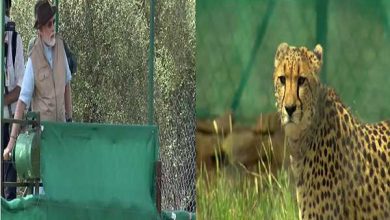Sunderbans gradually losing its very dense mangrove cover Neempith,

West Bengal, July 27 (UNI) The Sunderbans, which is the world’s largest mangrove delta and home to the Royal Bengal Tiger, is gradually losing its very dense mangrove cover, and Directorate of Forest, South 24 Pargana division in West Bengal, has announced a mammoth mangrove plantation initiative. Experts said rising salinity levels and the increasing number of cyclones in recent times are together taking a toll on the mangrove forest. It comes as a concern because the mangrove cover acts as a barrier against cyclones while protecting Kolkata from directly bearing the brunt of storms that originate in the Bay of Bengal. West Bengal Chief Minister Mamata Banerjee also announced mass Mangrove plantation in the year 2020. KSCH (Kolkata Society for Cultural Heritage (KSCH), The United Nations Accredited social enterprise, with an experience in mangrove plantation since 2017 in the Sundarbans area, would engage villagers in plantation and maintenance thus creating an alternative income opportunities for almost 42,000 villagers here in next five years. Directorate of Forest, South 24 Pargana division, announced a mammoth mangrove plantation initiative on Wednesday here to commemorate World Mangrove Day. Milan Mandal, Divisional Forest Officer (DFO) 24 Parganas South Division, formally announced the allocation of a huge tract of land measuring 1020 hectares – (equivalent to 2520 acres) of non-forest land to Kolkata Society For Cultural Heritage for mangrove plantation and maintenance. Arpita Mukherjee, President, Kolkata Society For Cultural Heritage, and Sourav Mukherjee, Founder Director, Kolkata Society For Cultural Heritage were present. It was the first such initiative with an enormous magnitude undertaken by the State Government in the Sundarbans sprawling over 3865 hectare. The announcement came on Wednesday on World Mangrove Day, which is significant. In fact In a recent plantation drive on July 18 in the presence of Bankim Chandra Hazra, Minister in Charge, Sundarban Affairs, Rana Dutta, Joint Director Biosphere Reserve, Milan Mandal, Divisional Forest Officer (DFO) 24 Parganas South Division, earlier took this decision. On Wednesday the formal announcement ratified the allocation. “The initiative is in line with the vision of our Chief Minister who contemplated 15 crore mangrove plantation in the sundarbans area. KSCH has been doing such plantation activity since 2017, hence we allocated this project to them. This initiative will help to create over 2lacs of man days,” said Milan Mandal, DFO South 24 Parganas. “We have plans to plant and maintain nearly two crore mangrove in the area in the next five years. We would engage villagers in the plantation and maintenance to create an alternative income opportunity for almost 42,000 villagers. We can now apply for carbon credits. This will be the first ever initiative where the government and NGOs can work together in carbon trading to bring funds for mangrove plantation and preservation. We are approaching different corporate houses and NGOs to join hands to implement the project,” said Sourav Mukherjee, founder and director of KSCH. Bankim Hazra, Minister in Charge, also felicitated Kolkata Society for Cultural Heritage (KSCH) for its contributions towards biodiversity and wildlife. “Through this project alternative livelihood is being generated for thousands of unemployed forest fringe villagers. This is the first time ever in the Sundarbans where Forest Department, NGOs and Corporates have come under the same roof to restore the mangrove forests”, said Sourav Mukherjee. “We, from KSCH so far has planted 18, 55,546 mangrove saplings and out of which 14, 54,406 have survived and all the saplings are in good shape. Kolkata Society for Cultural Heritage also started communicating with different corporate houses and other NGOs to join hands to implement the project. Significantly NRK Trust from London is planting 2,00,000 mangrove saplings every year. Till date they have planted 4,44,000 mangroves in collaboration with KSCH. Other NGOs like Soroptimist International South Kolkata (SISK) has been working with KSCH for the last 4 years,” said Arpita Mukherjee, president KSCH. Besides protecting the Sundarbans from natural calamities like Amphan, yash, and restoring biodiversity, The project would also empower poor villagers economically by creating livelihood for them for over 5 years. “KSCH started the work in 2017 with 55 women only. Now more than 4,200 families work under KSCH’s umbrella and are involved in mangrove cultivation. We mobilized 4,200 underprivileged families and organized multiple capacity building programs on mangrove cultivation and plantation. After the capacity building training one unit started to collect the fruits and seeds from the river. Another skilled team prepared the soil and implanted the seeds,” added Arpita Mukherjee. Individuals, Corporate houses, Schools and other social institutions will start to adopt these saplings and another team from the community will start the plantation. After seed implantation, the work is to maintain the saplings from insects, birds, heavy rains and other natural calamities like high tide & low tide. Preservation and promotion of the age-old culture related to Mangrove forests have been another motivation behind this drive.






